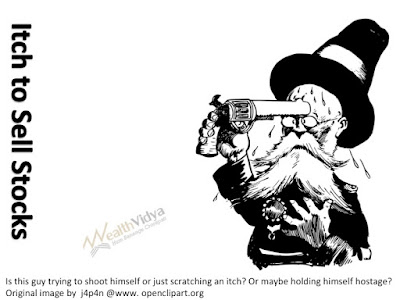Ordinary
investing activities can never compare with the amazing value investing
advantages. Many a successful value
investor will vouchsafe for this.
The
benefits of value investing, over day trading and investing in mutual funds,
are of two categories, viz. tangible financial results and subtle indirect benefits.
Direct and tangible investment advantages:
- High degree of investment protection;
- Regular and superior dividend income;
- Good capital appreciation;
- Saving high fund management fees collected by mutual funds;
- Attaining financial freedom;
- Assured, long term wealth creation;
Subtle, incidental benefits:
- Conquering the negative emotions of greed and fear;
- Developing the virtue of patience;
- Peace of mind;
- Better health;
How
does value investing bestow these advantages? The answer is simple; it is based
on a long and thorough research before making crucial investment
decisions. The research includes
studying the companies, their balance sheets, understanding their business
models, analyzing various financial ratios, assessing the integrity of the
managements, etc. It relies mainly on
the intrinsic value of the underlying assets – shares, bonds and other
financial instruments. It ignores
short-term fluctuations in prices.
On
the other hand, conventional investment methods lay heavy emphasis on price
movements. While the day traders seek to
make a profit out of price movements during the trading hours of the day,
mutual fund’s performance is gauged by returns,
which means the change in the net asset value (NAV) of the fund, over a certain
period of time, based on market prices.
Mutual
fund managers, who are supposed to be financial experts; on whom millions of
lay investors repose their trust and entrust their life’s savings, themselves
are under severe pressure to improve the returns,
and therefore are often forced to churn the portfolios frequently, leading to
making inappropriate buy and sell decisions.
All this results in higher costs and inferior long-term wealth creation
for investors. Thus they end up doing
disservice to the investors.
Day
trading in stocks is pure gambling; it cannot be called investing at all. It is fraught with grave risks. Day traders place bets based on anticipated
price movements of stock and commodities on the exchanges. Since the expected gains are small, in order
to magnify the gains, brokerages encourage them to increase the size of the bet
(total value of the transaction), by demanding just a small deposit, usually 5
to 20%, called the margin. This is a double-edged sword, magnifying both the
gains as well as losses by as much as five to 20 times. Small, lay investors invariably suffer
losses.
Constant
monitoring of prices by day-traders and reading performance reports by mutual
fund investors increase anxiety levels and leads to health problems. However, having made investments after solid
research, value investors can simply forget their investments for months and
years. They can relax in the comforting
safety of their method that has stood the test of time.
In
the end, wonderful value investing advantages like of safety of capital and
superior returns are not offered by any other method of investing.





